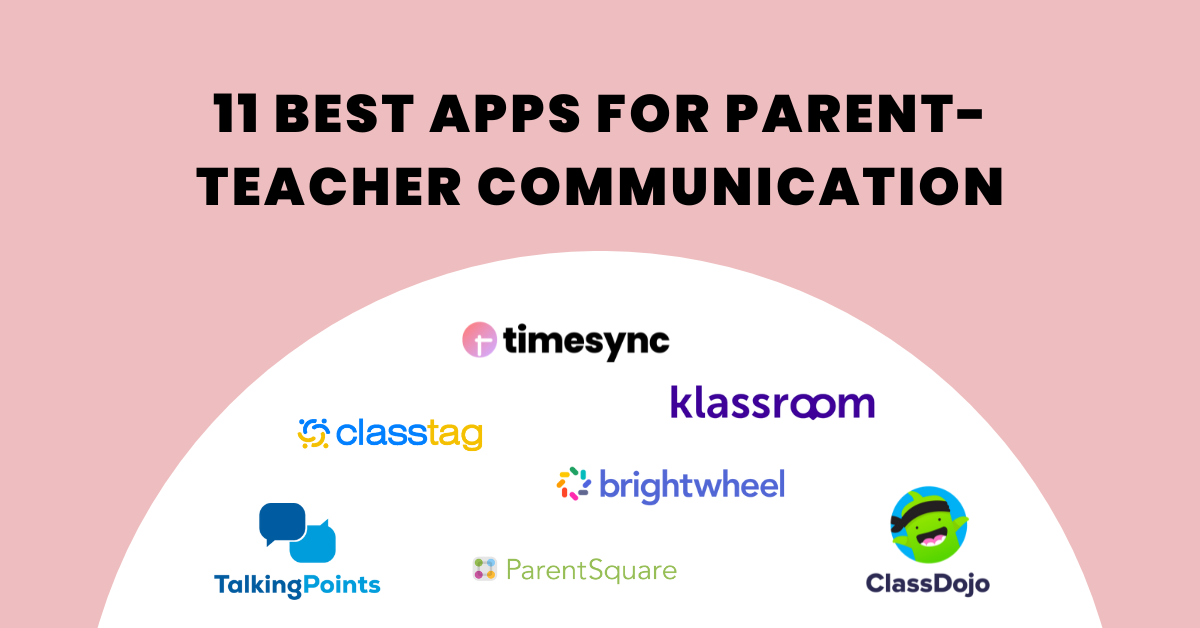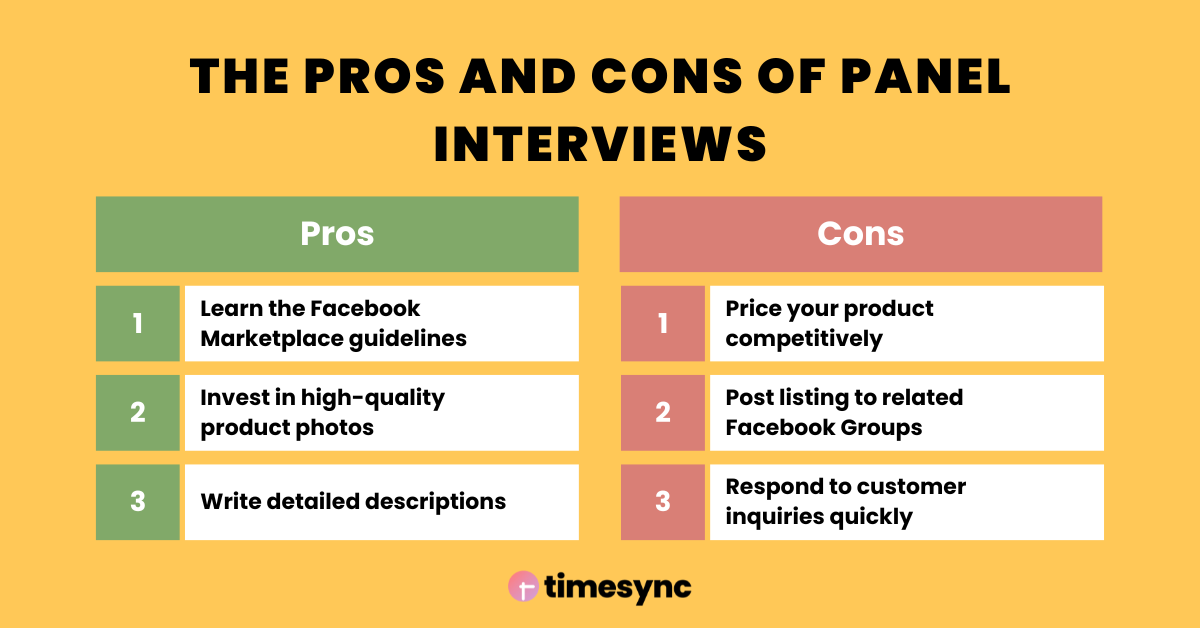




Content Writer
Out of the many different interview styles, panel interviews are becoming extremely popular among organizations of different sizes and industries. Not only does it help businesses shortlist candidates faster, but it also gives a good idea of how each applicant performs under pressure.
But, even though it’s a common interview style, should you use it for your interviews? Why are they good?
To help you clear your doubts, we dive deeper into the pros and cons of panel interviews so you can weigh out your options. Let’s get started!
💡Additional read: One-On-One Interviews VS Panel Interviews: Which Is Better?
A panel interview is a form of an interview that involves the interviewing of multiple subjects. This can be done by two or more interviewers, or it may be done in a group setting.
The most common type of panel interview is where two or more interviewers are present — usually called roundtable interviews. Typically, the panelists are the key decision makers of the company asking questions related to the candidate, the company, or the industry.
There is a second kind of panel interview that can involve more than one applicant and can be conducted individually or as a group discussion/debate.
In this situation, each applicant will be interviewed separately by different people on the panel, and based on that, the interviewers will shortlist the deserving candidates.
Panel interviews are helpful because they help overcome a common problem faced in all other interview types — an interviewer’s bias that can get too personal and leave the interviewee feeling uneasy or lead to biased hiring.
Herein, the panelists are usually chosen to represent different departments, backgrounds, or perspectives and belong to a diverse group that differs in age, gender, seniority level, and positions.
This gives a chance to all interviewers to assess different aspects of the candidates’ personalities and an opportunity to discuss the candidate’s qualifications, behavior, work experience, and potential future.
As a result, a panel interview minimizes any bias that could hinder the hiring process.
Panel interviews are a great way to get a diverse mix of opinions on a candidate. Unlike most other interviews, a panel of interviewers generates a variety of intriguing questions.
Since all panelists are from different areas of expertise, the possibility of the same question is very low. Instead, they can come up with the most efficient and comprehensive interview questions to ask each candidate.
Panelists can also focus on different areas of a candidate’s history and talents during the interview, allowing the group to cover a wide range of subjects.
As a result, the candidate is assessed in a much more in-depth way.
When interviewing several candidates, panel interviews are an excellent approach to reduce the amount of time and money spent on the interviewing process.
Panel interviews eliminate the need to schedule individual meetings with each candidate. This results in significant savings in terms of both time, money, and effort since it eliminates the need for back-and-forth emails just to schedule a time with one candidate.
Panel Interviews are a quick and easy way to give the interviewee insight into a company’s culture.
The candidates will have a better experience overall if they are given the opportunity to meet with a range of employees early on in the recruiting process.
This will help them get familiar with other team members, company expectations, and gain a better understanding of how things go.
Not only that, but if and when the right candidate is chosen, he will already be acquainted and familiar with a majority of the company’s key members, and vice-versa.
Given the fact that each panelist comes from a unique area of expertise, they will be in a better position to evaluate the applicant’s overall level of knowledge and competence.
In addition to that, you’ll be able to evaluate their capability to collaborate with others in a group setting. In this context, it is essential for potential employees to show that they are able to collaborate well with others.
There are times when the interviewer does not have the required level of experience to conduct an interview effectively. Hence, panel interviews are important not just for choosing the most suitable applicant, but also for teaching inexperienced interviewers how to carry out effective interviews.
Participating in panel discussions would be the best way for them to gain experience in this circumstance since it would allow them to participate in real-time interviews and learn the practical ways of managing an interview.
Confronting an excessive number of interviewers who may be of higher job positions may cause candidates to experience the status difference and easily get intimidated.
There is a strong possibility that the candidate being interviewed may get anxious and stutter when they are put under a lot of pressure and stress.
Also, when there is an excessive number of questions asked by several interviewers, the interviewee, even if he is competent, can get confused and not perform to the best of his ability. This is a significant drawback to considering the interviewee’s point of view.
Since there are numerous members interviewing the same candidate, each member of the panel will only have a specific amount of time to speak to the candidate. This might result in the panelists not getting to know the candidates as well as they should have.
It is also very common for a person who has a more dominant personality to end up monopolizing the interview, steering it in a certain direction.
For instance, if a dominant interviewer is very interested in one component of the candidate’s background, this could result in an excessive amount of time spent on the questioning. This leaves little room for other questions to be asked, especially if there’s not enough time.
If you don’t have the necessary trained personnel to conduct these interviews, you’ll have to hire an interviewer each time.
For it to be productive, you need someone who knows how to interview properly and can keep track of who is speaking at what point in time so that no one misses anything important happening during your conversations with the candidates.
This becomes even worse if you are not hiring for a commanding position because then, you wouldn’t need a panel of experts, rather one-on-one interviews would have been the more feasible option.
When conducting an interview with more than two participants, it is quite probable that there will be a delay in time (due to the need to gather each interviewer).
Not only that, but it also results in a decrease in productivity since panel members are not present at their usual place of work. Sometimes they are also required to spend additional time, which they might have alternatively used for business activities, either preparing for the interview or sharing their opinions after the interview.
As a result, a panel interview requires a lot of time and energy and has a direct effect on the productivity of the whole business.
One-on-one meetings are a great way to enhance an organization’s productivity. Using one-on-one meetings, you will be able to assist your team in accurately prioritizing their duties and activities.
Additionally, when your employees know that they can discuss any technicalities with their manager without any fear of being reprimanded, they are more likely to report issues that have been bothering them.
You, as a manager, can have a discussion on crucial topics, devise plans, and answer any questions they have, which will not only reduce the number of times they interrupt you during the day but also allow them to carry out everything smoothly and generate the highest possible return on their investments.
When a candidate gives their response to any question, due to the interviewers being from different work backgrounds, the responses may be interpreted in a variety of ways by each member of the panel.
It’s possible that some might agree with the answers shared by the candidates, and some might not. This may lead to misunderstandings and disagreements among the members of the panel.
To conclude, panel interviews have their pros and cons like every other type of interview. There is no one interview format that is superior to the other. In the end, businesses need to assess certain aspects such as:
Keep in mind that it will have an effect on the candidate’s experience, the duration of the recruiting process, your company’s reputation, and, of course, the number of candidates who are successful in making it through the process.
Now, it is important to take your time and make this decision deliberately.

Devesh is a content writer at Novocall.
Related articles
Subscribe to our blog
Get insights & actionable advice read by thousands of professionals every week.